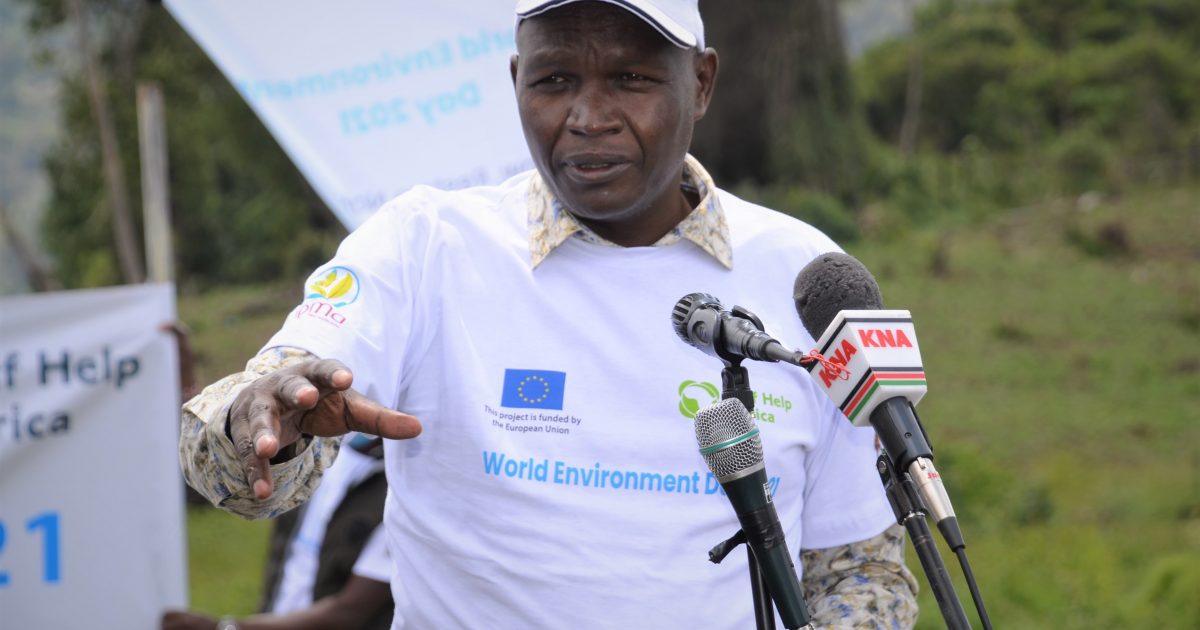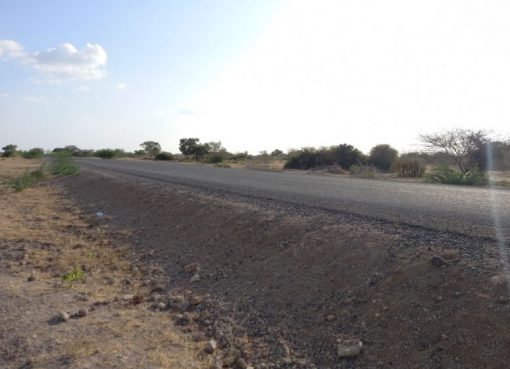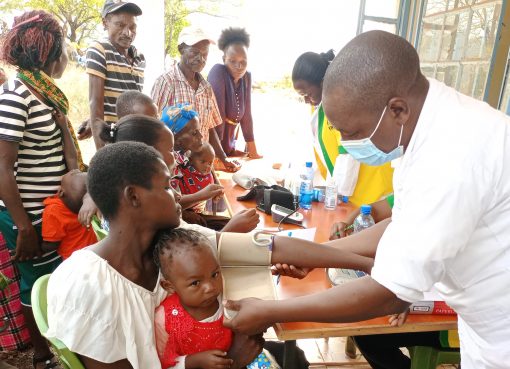Baringo Governor Stanley Kiptis has urged residents in major towns in the County to embrace the ongoing construction of sewerage systems within the county instead of opposing such projects that are meant to improve sanitation of urban areas.
Speaking at Chemususu catchment area in Koibatek Sub County during the World Environment Day, Kiptis noted that sewerage projects within the County has met resistance from members of the community because they hold misguided views and opinions.
The governor was referring to a case where the community members were reluctant to surrender their land for a 1 billion project therefore stalling the Eldama Ravine sewerage plant project.
“If you refuse, where will we put such important facility, yet we have already secured resources for the contractor to commence construction works?” he posed.
The governor, accompanied by Koibatek Deputy County Commissioner Omar Ali, Deputy Governor Jacob Chepkwony, Self Help Africa (SHA) Programmes Manager Julius Rono and CECs Mary Panga (Environment) and Dr. Maurine Rotich (Water) stated that the sewerage system in the county was a crucial element within the last mile water connectivity project.
He called for all stakeholders to support the project saying it will benefit the future generations and also help in environment conservation.
At the same time, the county boss observed that the construction works of Kabarnet Sewerage Plant has delayed where he called on the national government to fast-track the project in order to effectively serve the population.
He noted that the last mile water connectivity in the region for Chemususu and Kirandich dams in Koibatek and Baringo Central sub counties respectively was ongoing and the residents will be accessing clean and safe water at their comfort of their doorsteps.
On environment conservation measures, the governor stated that the county government was partnering with the Kenya Forest Services to set up strategies to increase the forest cover from the current 25.6 per cent to above 30 per cent.
“On water resources, wetlands and catchment conservation, we have protected by fencing, building gabions and planting trees on 32 springs, two swamps, four hill tops and two river banks,” he said.
He further added that his administration has so far restored ten sites which had been affected by soil and gulley erosion in an effort to conserve soil.
Chepkwony while reiterating the sentiments called on the residents to take responsibility in environmental conservation, adding that if people live in a better environment, then it will also be easier for development agendas to be achieved.
He added that the theme of this year, “Ecosystem Restoration,” is a rallying call to all stakeholders to scale up conservation efforts by protecting wetlands, forest, biodiversity and the ecosystem.
The Deputy Governor said the county was bearing brunt of climate change as witnessed by the rising water levels of Lake Baringo, Lake Bogoria and Lake Kichirtit (Lake 94), thus they needed to be proactive in environment conservation.
On his part, Ali said the national government through the Kazi Mtaani programme had managed to produce over 250,000 tree seedlings which will go a long way in improving forest cover in the county.
By Benson Kelio and Christopher Kiprop




